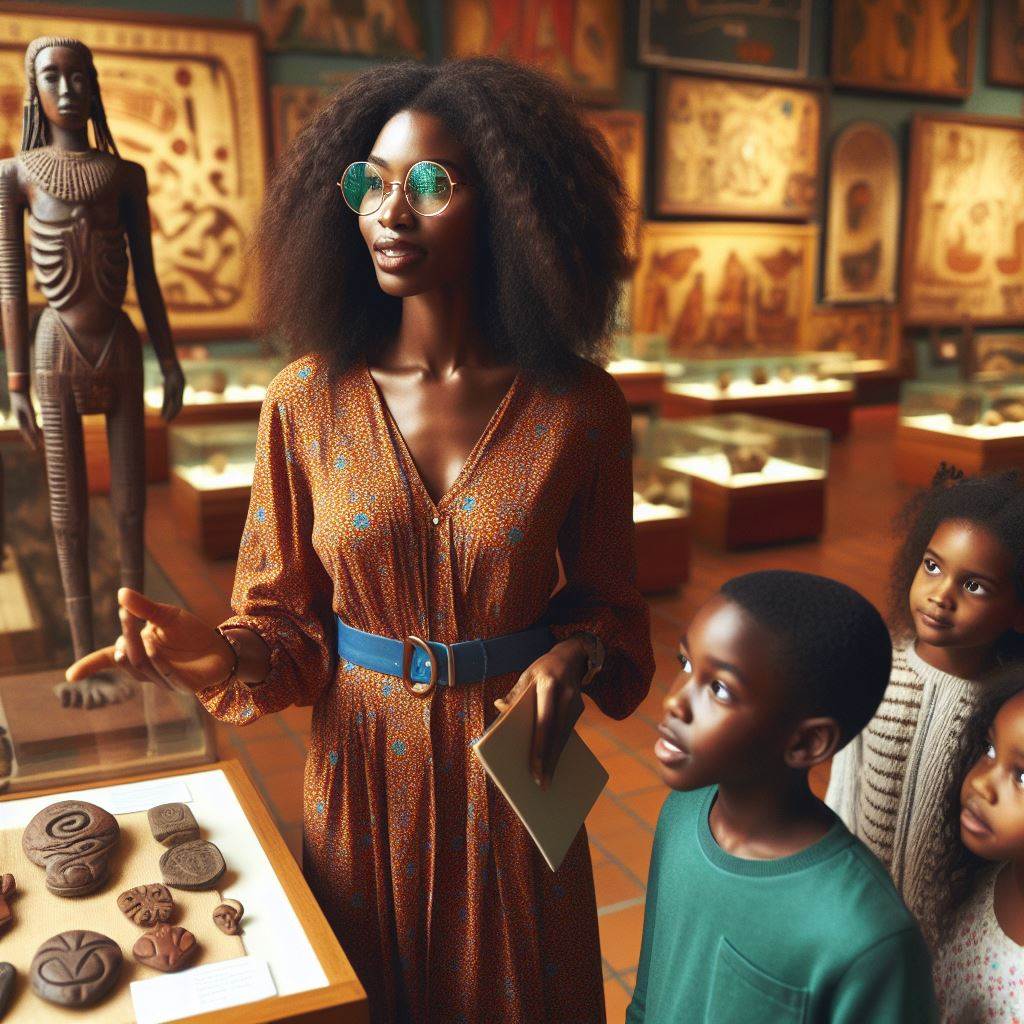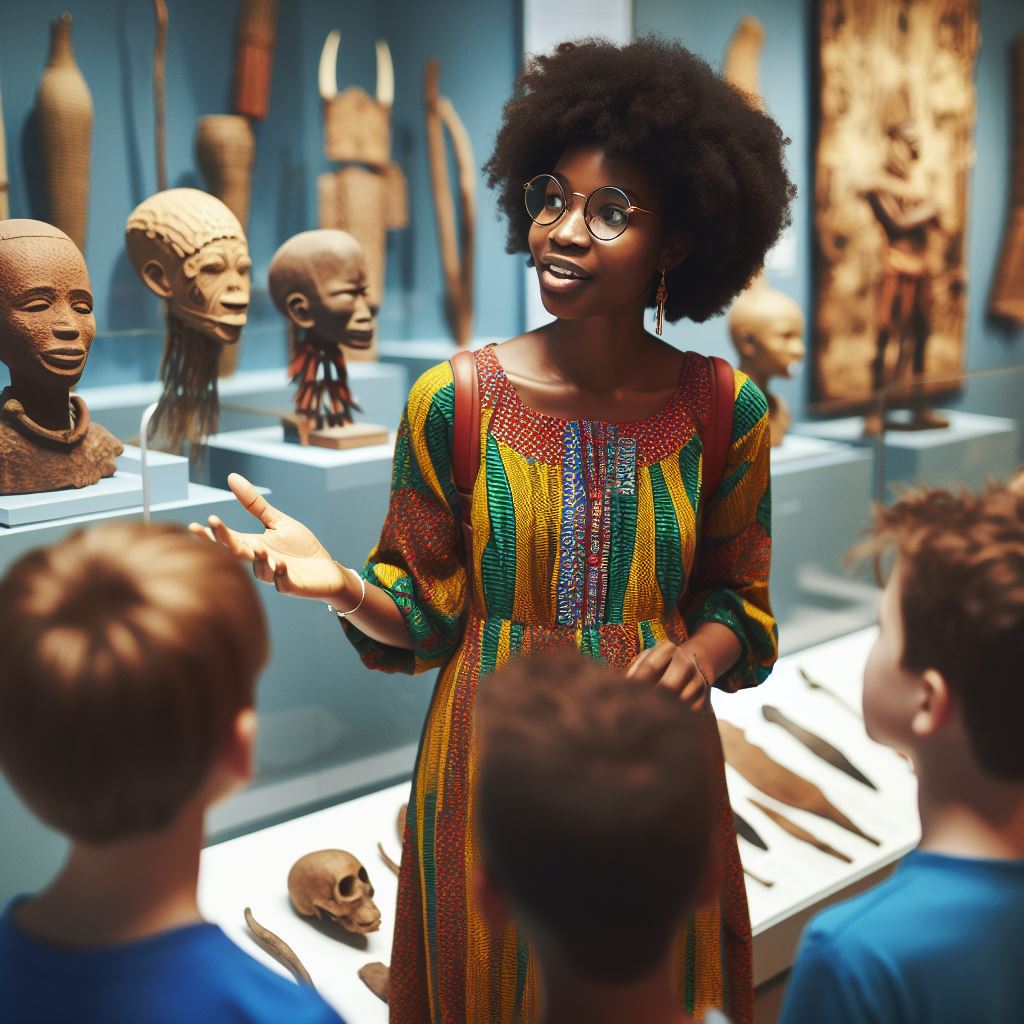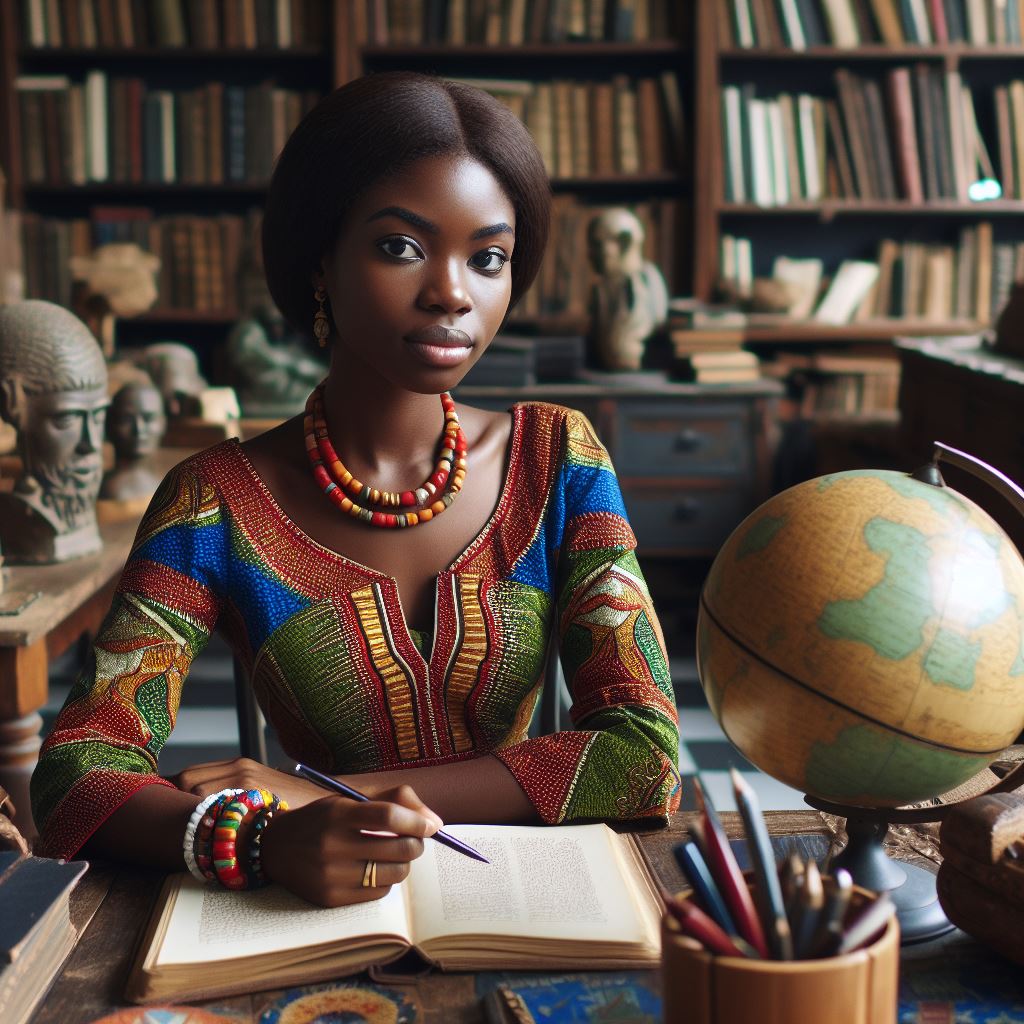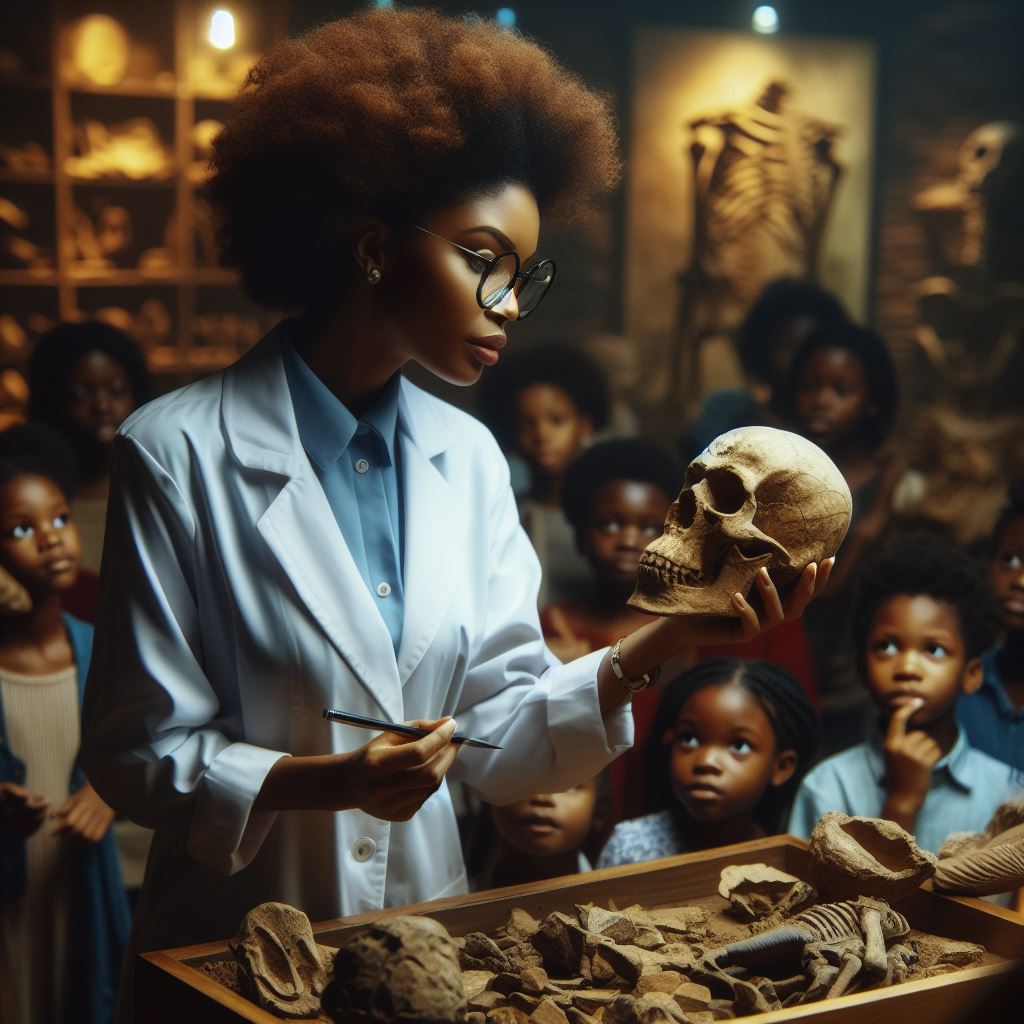Introduction
Anthropology in Nigeria boasts a rich history, offering profound insights into diverse cultural landscapes. Nigerian anthropologists have played pivotal roles, contributing significantly to the global discourse within the field.
Anthropology in Nigeria: A Brief Overview
Nigeria, with its mosaic of cultures and ethnicities, provides a fertile ground for anthropological study. From the vibrant traditions of the Yoruba to the intricate societal structures of the Hausa-Fulani, Nigeria encapsulates a myriad of anthropological narratives.
Importance of Nigerian Anthropologists in Shaping the Field
Nigerian anthropologists have been instrumental in challenging Eurocentric perspectives within the discipline. Their works have illuminated indigenous knowledge systems, enriching anthropological scholarship with diverse cultural perspectives.
Pioneers of Nigerian Anthropology
One notable figure is Professor Catherine Acholonu, whose research delved into Igbo mythology and its implications on contemporary society. Her groundbreaking work laid the foundation for the exploration of African spirituality within anthropology.
Contemporary Voices
Dr. Ifi Amadiume, a leading feminist anthropologist, has revolutionized the understanding of gender dynamics in African societies. Her seminal work, “Male Daughters, Female Husbands,” challenged Western notions of gender roles, sparking debates across academia.
Advancements in Methodology
Nigerian anthropologists have contributed to innovative methodologies, such as participatory action research, ensuring community involvement in scholarly endeavors.
This approach fosters mutual respect and understanding between researchers and the communities they study.
Impact on Policy and Development
The insights provided by Nigerian anthropologists have influenced policy formulation and development initiatives. By incorporating indigenous knowledge into development agendas, they promote culturally sensitive approaches to addressing societal challenges.
Global Recognition
Nigerian anthropologists have gained international acclaim for their contributions to the field. Their works have been featured in prestigious academic journals and have shaped discourse in conferences and symposiums worldwide.
Basically, Nigerian anthropologists stand as vanguards of cultural preservation and understanding. Their contributions have transcended borders, enriching anthropological discourse and fostering global appreciation for the rich cultural tapestry of Nigeria.
As we delve deeper into this exploration, we will uncover the lives and works of influential Nigerian anthropologists who have left an indelible mark on the discipline.
Prof. Adewale Rotimi: A Pioneer in Nigerian Anthropology
Background and Education
Prof. Adewale Rotimi, a luminary in Nigerian anthropology, was born in Lagos in 1950. He pursued his undergraduate studies at the University of Ibadan, majoring in Anthropology.
After completing his bachelor’s degree, Rotimi ventured abroad for postgraduate studies. He earned his master’s degree in Anthropology from the University of Cambridge.
Notable Contributions to Anthropology in Nigeria
Rotimi’s contributions to Nigerian anthropology are diverse and impactful. He has extensively researched traditional belief systems and cultural practices in various Nigerian communities.
His groundbreaking work on Yoruba cosmology shed light on the intricate interplay between religion, society, and worldview. Rotimi’s studies have been pivotal in understanding the rich cultural tapestry of Nigeria.
In addition to his academic pursuits, Rotimi has actively engaged in fieldwork, immersing himself in local communities to gain firsthand insights into their way of life.
Impact on Cultural Studies and Research
Rotimi’s influence extends beyond academia, shaping cultural studies and research across Nigeria. His emphasis on cultural relativism has fostered a more nuanced understanding of diverse cultural practices.
Through his publications and lectures, Rotimi has inspired a new generation of anthropologists to explore Nigeria’s cultural heritage with empathy and respect.
Moreover, Rotimi’s advocacy for indigenous knowledge systems has encouraged a reevaluation of Western-centric approaches to anthropology.
His collaborative approach to research has facilitated partnerships between academic institutions and local communities, fostering mutual learning and understanding.
In review, Prof. Adewale Rotimi stands as a beacon in Nigerian anthropology, his work transcending academic boundaries to enrich cultural discourse and promote intercultural understanding.
Read: Exploring Semiotics in Communication Arts
Prof. Ifi Amadiume: Revolutionizing Feminist Anthropology
Prof. Ifi Amadiume stands as a towering figure in Nigerian anthropology. Her pioneering work in feminist anthropology has left an indelible mark on the discipline.
Early Beginnings and Academic Journey
Born in Nigeria, Amadiume’s academic journey began with a focus on sociology and anthropology. She pursued her studies with fervor, earning degrees from prestigious institutions.
Influence on Gender Studies in Nigeria
Amadiume’s influence on gender studies in Nigeria cannot be overstated. Her insightful perspectives have reshaped how gender dynamics are perceived and understood in the country.
Challenging Traditional Notions
Amadiume’s work challenges traditional notions of gender roles and power dynamics within Nigerian society. She delves deep into cultural practices, uncovering the complexities of gender relations.
Deconstructing Patriarchal Structures
Through her research, Amadiume deconstructs patriarchal structures prevalent in Nigerian culture. She sheds light on how these structures impact the lives of both men and women.
The Concept of Male Dominance
One of Amadiume’s notable contributions is her critique of the concept of male dominance. She offers alternative narratives that emphasize the agency and resilience of women.
Publications and Academic Achievements
Amadiume’s publications span a wide range of topics within feminist anthropology. Her seminal work, “Male Daughters, Female Husbands,” remains a foundational text in the field.
Breaking Ground with “Male Daughters, Female Husbands”
In “Male Daughters, Female Husbands,” Amadiume explores the practice of women assuming male roles in certain Nigerian cultures. Her groundbreaking analysis challenges Western-centric views of gender.
Contributions to African Feminism
Amadiume’s scholarship extends beyond academia; she is also a vocal advocate for African feminism. Her work amplifies the voices of African women and challenges Eurocentric feminist perspectives.
Shaping the Future of Anthropology
As a professor and mentor, Amadiume continues to shape the future of anthropology in Nigeria. Her dedication to advancing feminist perspectives inspires the next generation of scholars.
Legacy and Impact
The legacy of Prof. Ifi Amadiume reverberates throughout Nigerian academia and beyond. Her pioneering work has paved the way for greater inclusion and diversity in anthropological discourse.
In short, Prof. Ifi Amadiume’s contributions to feminist anthropology have been transformative. Her work has not only expanded our understanding of gender dynamics but also paved the way for more inclusive and diverse scholarship in Nigeria and beyond.
Read: Developing Critical Thinking in Language Arts
Prof. Sule Bello: Champion of Indigenous Knowledge
Prof. Sule Bello, a distinguished figure in Nigerian anthropology, delves deep into indigenous knowledge systems. With unwavering dedication, he shines a light on the richness of Nigerian cultural practices.
Delving into Indigenous Knowledge Systems
Bello’s research is a testament to his commitment to understanding and preserving indigenous knowledge. He passionately explores the intricate web of traditions, beliefs, and practices that define various Nigerian societies.
Unveiling Nigerian Cultural Practices
Through his work, Bello offers a nuanced representation of Nigerian cultural practices. He meticulously documents ceremonies, rituals, and customs, ensuring they are accurately portrayed and appreciated.
Bridging Past and Present
Bello’s efforts extend beyond mere documentation; he actively engages with traditional societies, fostering dialogue and understanding. He serves as a bridge between the past and the present, facilitating the preservation of invaluable cultural heritage.
Advocating for Cultural Preservation
As an advocate for cultural preservation, Bello tirelessly promotes awareness and appreciation of Nigeria’s diverse traditions. He emphasizes the importance of respecting and safeguarding indigenous knowledge in an ever-changing world.
Empowering Local Communities
Bello’s work empowers local communities by validating their cultural identities and practices. Through collaboration and mutual respect, he fosters a sense of pride and ownership among indigenous peoples.
Challenging Western Dominance
In a field often dominated by Western perspectives, Bello’s research offers a refreshing counterbalance. He challenges Eurocentric narratives, asserting the validity and significance of indigenous knowledge in global discourse.
Transform Your Career with Expert Guidance
Get personalized mentorship consulting that’s tailored to your unique path. Our expert advice is actionable and exclusive.
Get StartedInspiring Future Generations
Bello’s legacy extends beyond his scholarly contributions; he inspires future generations of anthropologists. His passion, integrity, and commitment serve as a beacon of inspiration for those eager to explore and celebrate cultural diversity.
Conclusion: A Cultural Steward
In Prof. Sule Bello, Nigeria has found a cultural steward dedicated to preserving its rich heritage. Through his research and advocacy, he ensures that indigenous knowledge remains a vital and respected aspect of Nigerian identity.
In the realm of Nigerian anthropology, Prof. Sule Bello stands as a towering figure, his work illuminating the depths of indigenous knowledge and cultural practices.
Read: Student Experiences: Life in Communication Arts

Delve into the Subject: How to Choose the Best Foreign Language to Study
Gain More Insights: Art Communities and Networks in Nigeria
Dr. Andrew Apter: Exploring African Diaspora
Dr. Andrew Apter, a prominent figure in Nigerian anthropology, focuses on African diaspora studies. He delves deep into the complexities of diasporic communities.
Expertise in African Diaspora Studies
Dr. Apter’s expertise lies in unraveling the intricate tapestry of African diaspora narratives. His research illuminates the diverse experiences of displaced African populations worldwide.
Comparative Analysis of Nigerian and African Cultures
With keen insight, Dr. Apter conducts comparative analyses of Nigerian and broader African cultures. He examines the intersections and divergences that shape cultural identities across the continent.
Unraveling Cultural Dynamics
Through rigorous research, Dr. Apter unravels the cultural dynamics at play within Nigerian society. His work sheds light on the multifaceted layers of tradition and modernity.
Collaborative Projects with Local Communities
Dr. Apter’s approach extends beyond academia, engaging directly with local communities. He collaborates on projects that empower communities to reclaim and celebrate their cultural heritage.
Empowering Through Research
Dr. Apter’s collaborative efforts empower communities to preserve and revitalize their cultural practices. Through shared knowledge and understanding, they forge pathways toward cultural resilience.
Promoting Cultural Preservation
By partnering with local stakeholders, Dr. Apter promotes the preservation of indigenous knowledge systems. Together, they safeguard cultural traditions against the pressures of globalization.
Bridging Academia and Community
Dr. Apter bridges the gap between academic research and community engagement. His inclusive approach fosters mutual learning and enriches both scholarly and local perspectives.
Advancing African Scholarship
Through his groundbreaking work, Dr. Apter advances the field of African anthropology. He challenges conventional narratives and amplifies diverse voices within the discipline.
Inspiring Future Generations
Dr. Apter’s dedication to African diaspora studies inspires future generations of anthropologists. His mentorship cultivates a new wave of scholars committed to inclusive and community-centered research.
In a nutshell, Dr. Andrew Apter’s contributions to Nigerian anthropology are invaluable. His expertise, collaborative spirit, and commitment to cultural preservation leave a lasting legacy of understanding and empowerment.
Read: Communication Arts: Balancing Theory and Practice
Explore Further: Key Subjects in Nigerian Political Studies Curriculum
Delve into the Subject: The Role of Culture in Nigerian Fashion Design
Dr. Wuraola Abiola: Shaping Healthcare Through Medical Anthropology
Dr. Wuraola Abiola, a notable figure in Nigerian anthropology, has significantly influenced the country’s healthcare landscape. Her specialization in medical anthropology delves deep into the cultural contexts of health and healing practices within Nigeria.
Exploring Traditional Healing Practices
Abiola’s research focuses extensively on traditional healing practices prevalent across Nigeria. Through rigorous fieldwork and ethnographic studies, she has documented the diverse array of traditional healing methods employed by different ethnic groups.
Bridging Traditional and Modern Healthcare
One of Abiola’s key contributions lies in bridging the gap between traditional healing systems and modern healthcare practices. Her work emphasizes the importance of recognizing and integrating traditional knowledge into mainstream healthcare policies.
Advocating for Cultural Sensitivity in Healthcare
Abiola’s advocacy extends to promoting cultural sensitivity within healthcare systems. She highlights the significance of understanding patients’ cultural backgrounds and beliefs in providing effective and holistic healthcare services.
Influencing Healthcare Policies
Abiola’s research findings have had a profound impact on healthcare policies in Nigeria. By shedding light on the efficacy of traditional healing practices, she has influenced policymakers to incorporate elements of traditional medicine into the national healthcare framework.
Enhancing Healthcare Practices
Through her interdisciplinary approach, Abiola has contributed to enhancing healthcare practices in Nigeria. By combining insights from anthropology with medical knowledge, she offers innovative solutions for addressing healthcare challenges.
Empowering Communities
Abiola’s work empowers local communities by validating their traditional healing practices. By acknowledging the effectiveness of indigenous healing methods, she fosters pride and confidence within these communities.
Shaping Future Research Directions
Abiola’s pioneering research sets the stage for future studies in medical anthropology in Nigeria. Her work inspires scholars to explore the intersections of culture, health, and healing within diverse Nigerian contexts.
In fact, Dr. Wuraola Abiola’s contributions to medical anthropology have left an indelible mark on Nigeria’s healthcare landscape.
Through her research on traditional healing practices and advocacy for cultural sensitivity, she has influenced healthcare policies and practices, ultimately leading to more inclusive and effective healthcare services for all Nigerians.
Conclusion
In closing, the influential Nigerian anthropologists highlighted in this blog post have made significant contributions to the field of anthropology both locally and globally.
Their work has helped shape our understanding of diverse cultures and societies, and has paved the way for future research and exploration.
By studying the work of these Nigerian anthropologists, we gain valuable insights into the rich cultural heritage of Nigeria and the African continent as a whole.
Their research has not only deepened our knowledge of the past but also sheds light on contemporary issues facing Nigerian society today.
It is important to continue exploring Nigerian anthropology and its impact on global studies to foster cross-cultural understanding and promote diversity in academia.
By delving into the works of these influential anthropologists, we can broaden our perspectives and challenge conventional wisdom, ultimately leading to a more inclusive and diverse scholarly community.
Therefore, let us continue to celebrate the achievements of Nigerian anthropologists and support their ongoing research efforts.
By doing so, we can honor their legacy and ensure that their contributions continue to inspire future generations of anthropologists to explore new horizons in the field of anthropology.




